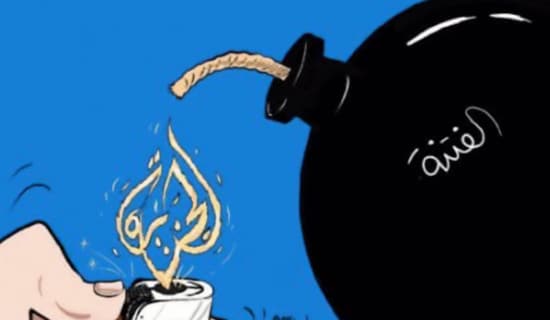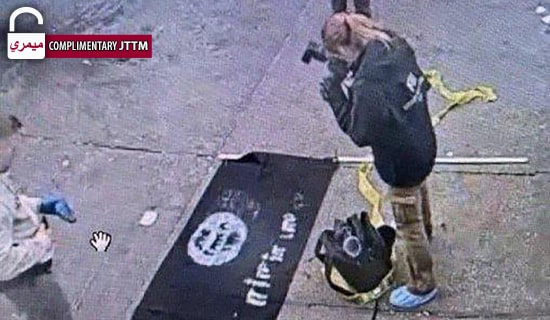Following are excerpts from a debate on the current Syrian economy, which aired on Al-Alam TV on October 2, 2011:
Economist 'Aref Dalila, a member of Syrian opposition: "I'm not saying that it is impossible that foreign elements try to bring weapons into Syria, and hand them over to certain groups or people. This is possible. It happens in every country around the world. But are we here to hold the Arab countries accountable? Shouldn't we hold ourselves accountable first? Have we asked ourselves to what extent we have been faithful to our country, before we hold others accountable for betraying us? Why don't we admit that we have betrayed ourselves, our country, our interests, and our economy?
"You say that the problem in Syria is [its lack of] water. Who dried up the water in Syria? Was it the Arab countries? Was it Israel? Was it America? Or was it us, with our mistaken policies, of which I've been talking for decades? Our country has become a desert. Why don't we hold ourselves accountable? Why do we try to evade our responsibilities and duties? […]
"When the events in Dar'a broke out… Everybody – government officials and others – admits that the problem could have been easily dealt with, without resorting to the army. I could never have believed that we would be seeing tanks on every street, in every alley, and in every village. What are they doing there? Fighting militants? Brother, a single police car with two policemen used to terrorize an entire neighborhood."
Interviewer: "Aren't there countries smuggling arms…?"
'Aref Dalila: "There are always such countries. The Baghdad Pact, Israel, the CIA… Let me finish. When the weapons were deployed all at once – the airforce, the tanks – this constituted a totally unjustified escalation." […]
Muhammad Dharar Jamo, Member of the Arab League's Arab Expatriates Department: "The Syrian economy is robust. Syria is self-sufficient, as everybody knows."
Interviewer: "What is this economy based on?"
Muhammad Dharar Jamo: "On agriculture, industry and our people. My friend, at the end of the day, even if the sanctions are harsh, we are capable of living in the mountains for hundreds of years, eating bread, olives, and cheese, until the Day of Judgment. If they ever as much as contemplate striking Syria… You are familiar with the balance of power. They threaten our economy because they are incapable of confronting us militarily." […]
'Aref Dalila: "I have always opposed foreign intervention of any kind, and economic sanctions in particular are unacceptable. I cannot say that economic sanctions are harmless, and that we could live in the mountains. Brother, we live in the 21st century. We should ask ourselves what progress we have made in Syria in the past 50 years. Iran manufactures missiles and builds nuclear plants. Iran manufactures airplanes, even though it is a third-world country."
Interviewer: "Does that bother you?"
'Aref Dalila: "I gave Iran as an example. What progress have we made here in Syria? Where have our resources gone over the past 50 years?"
Interviewer: "Some people would tell you that Syria is the only country without debt. That is considered an achievement."
Muhammad Dharar Jamo: "In Syria, one kilo of bread costs only 7 liras. The country spends a hundred million dollars daily in subsidies for the poor. This is unparalleled anywhere in the world." […]
'Aref Dalila: "[Ceausescu's] Romania was the only country that didn't owe a single penny to anyone. But when you traveled through Bucharest by train, you would see the proud, educated Romanians waiting for the train to beg for a sugar cube or a tea bag from the passengers. Ceausescu hailed Romania as the only country without debt, but how did the people live? We claim that we have no debt, but we do have. We owe billions. No one can say that we have no debts. At the same time, the average income, the standard of living, and our actual wages are one quarter of what they used to be in the 1980's – not to mention the 1960's." […]




